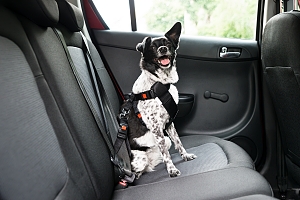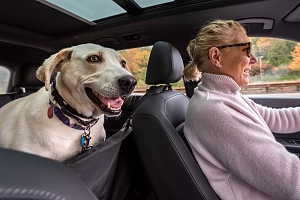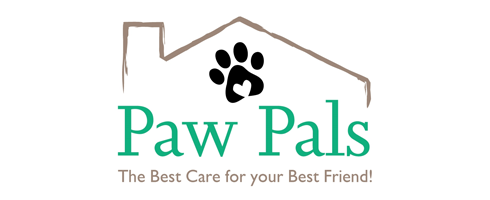Traveling with our furry companions is always a joy, but ensuring their safety on the road is paramount. Just like humans, dogs can sustain serious injuries in car accidents if not properly secured. To make every journey safer for both you and your pooch, we’ve gathered some essential tips:
Invest in Restraint Systems
 It’s crucial to restrain your dog while in the car to prevent them from interfering with your driving and to protect them in case of an accident. These products not only keep your dog secure but also minimize the risk of them being thrown throughout the vehicle in the event of a collision.
It’s crucial to restrain your dog while in the car to prevent them from interfering with your driving and to protect them in case of an accident. These products not only keep your dog secure but also minimize the risk of them being thrown throughout the vehicle in the event of a collision.
- Carriers: A sturdy, well-ventilated carrier can provide a safe, enclosed space for your dog. Make sure it is large enough for your dog to stand, turn around, and lie down comfortably.
- Car Dividers: These can be used to separate your dog from the passenger area. Dividers are typically used in the back of SUVs or larger vehicles, creating a designated space for your pet.
- Pet Seat Belts: These devices attach to your dog’s harness and plug into the car’s seat belt system, providing a secure way to keep your dog in place. Ensure you use a harness rather than a collar to prevent injury.
Properly restraining your dog not only enhances their safety but also ensures you remain focused on driving, reducing the risk of accidents caused by distractions.
Carry a Pet First Aid Kit
Be prepared for any situation by having a pet first aid kit on hand during your travels:
- Bandages and Gauze: For wound care and to stop bleeding.
- Antiseptic Wipes: To clean minor cuts and prevent infection.
- Tweezers: Useful for removing splinters or ticks.
- Medications: Any specific medications your dog requires, including flea and tick treatments.
- Veterinary Records: Copies of vaccination records, medical history, and a brief bio about your dog’s behavior and health status. This information is vital for emergency responders or vets if you are incapacitated.
Having these supplies ready ensures you can address minor injuries immediately and provides peace of mind knowing you are prepared for more serious situations.
Limit Food Before Travel
To minimize the chances of your dog experiencing nausea during the journey, it’s advisable to limit their food intake before traveling. A lighter meal or snacks a few hours before departure can help keep your pup comfortable throughout the trip.
- Timing: Feed your dog at least 3-4 hours before you leave. This allows their stomach to settle and reduces the risk of motion sickness.
- Portion Size: Offer smaller portions than usual. Large meals increase the likelihood of nausea and vomiting.
- Hydration: Ensure your dog has access to water, but be mindful of over-drinking right before travel.
By managing your dog’s food intake, you can help prevent discomfort and ensure a more pleasant travel experience for both you and your furry friend.
Never Leave a Dog in a Vehicle
This cannot be stressed enough – never leave your dog unattended inside a vehicle, even for a short period. The temperature inside a car can rise rapidly, leading to heatstroke and even death, even with the windows cracked open. Not only is it extremely unsafe for your pet, but it’s also illegal in many places and can result in severe consequences for the owner.
Invest in Safety Gear
While you may instinctively want to hold onto your dog in the event of an accident, the force involved can be overwhelming. Invest in proper safety gear such as harnesses or crates to secure your dog effectively. Remember, you cannot prevent a loose dog from being hurt in an accident solely through physical restraint.
Plan Regular Breaks
Just like humans, dogs can become restless and uncomfortable during long car journeys. Plan regular breaks to allow your dog to stretch their legs, have a drink of water, and relieve themselves. This helps prevent stiffness and discomfort, keeping your pup happy and relaxed throughout the trip.
Secure Loose Items in the Car
Loose items such as crates, luggage, or even groceries can become projectiles in the event of a sudden stop or collision, posing a risk to both you and your dog. Secure these items properly to prevent them from flying around the car and causing injury.
Use Window Guards or Barriers
Dogs often enjoy sticking their heads out of car windows to take in the sights and smells, but this can be dangerous. Invest in window guards or barriers to prevent your dog from accidentally falling out or getting injured by passing objects.
Keep Your Dog Calm
Some dogs may experience anxiety or stress while traveling in the car. Help keep them calm by playing soothing music, providing their favorite toys or blankets, and using calming sprays or pheromone diffusers. Additionally, consider acclimating your dog to car travel gradually by taking short trips and gradually increasing the duration.
Check Your Dog’s Identification
Before embarking on any journey, ensure your dog’s identification tags are up to date with current contact information. In the unfortunate event that your dog becomes lost during the trip, proper identification can significantly increase the chances of a safe return home.
Protect Against Motion Sickness
Some dogs are prone to motion sickness, especially during car rides. If your dog experiences nausea or vomiting while traveling, consult your veterinarian for advice on medications or supplements that can help alleviate symptoms. Additionally, avoid feeding your dog right before travel and keep the car well-ventilated to minimize discomfort.
Train Your Dog for Car Safety
 Teach your dog to associate the car with positive experiences by incorporating rewards and praise during training sessions. Practice basic obedience commands such as “sit” and “stay” to ensure your dog remains calm and cooperative while traveling. Consider enrolling in a canine car safety course or working with a professional trainer to address any specific behavioral issues related to car travel.
Teach your dog to associate the car with positive experiences by incorporating rewards and praise during training sessions. Practice basic obedience commands such as “sit” and “stay” to ensure your dog remains calm and cooperative while traveling. Consider enrolling in a canine car safety course or working with a professional trainer to address any specific behavioral issues related to car travel.
Our canine companions are cherished members of our families, and it’s our responsibility to protect them during every journey. By utilizing restraint systems, carrying essential supplies, and practicing conscious safety measures, we can significantly reduce the risk of both human and canine fatalities in car accidents. Let’s ensure every trip is not just enjoyable but also safe for everyone involved, including our beloved four-legged friends.
Reach Out to Northern Virginia’s Most Trusted Pet Sitters
Ready to embark on safe and enjoyable adventures with your furry friend? Trust Paw Pals Pet Sitting to keep your pet’s safety a top priority! Whether you’re planning a road trip or a quick drive to the park, our expert team is here to provide reliable pet care solutions. Contact us today to learn more about our services and make your pet’s next journey a memorable and safe one!


